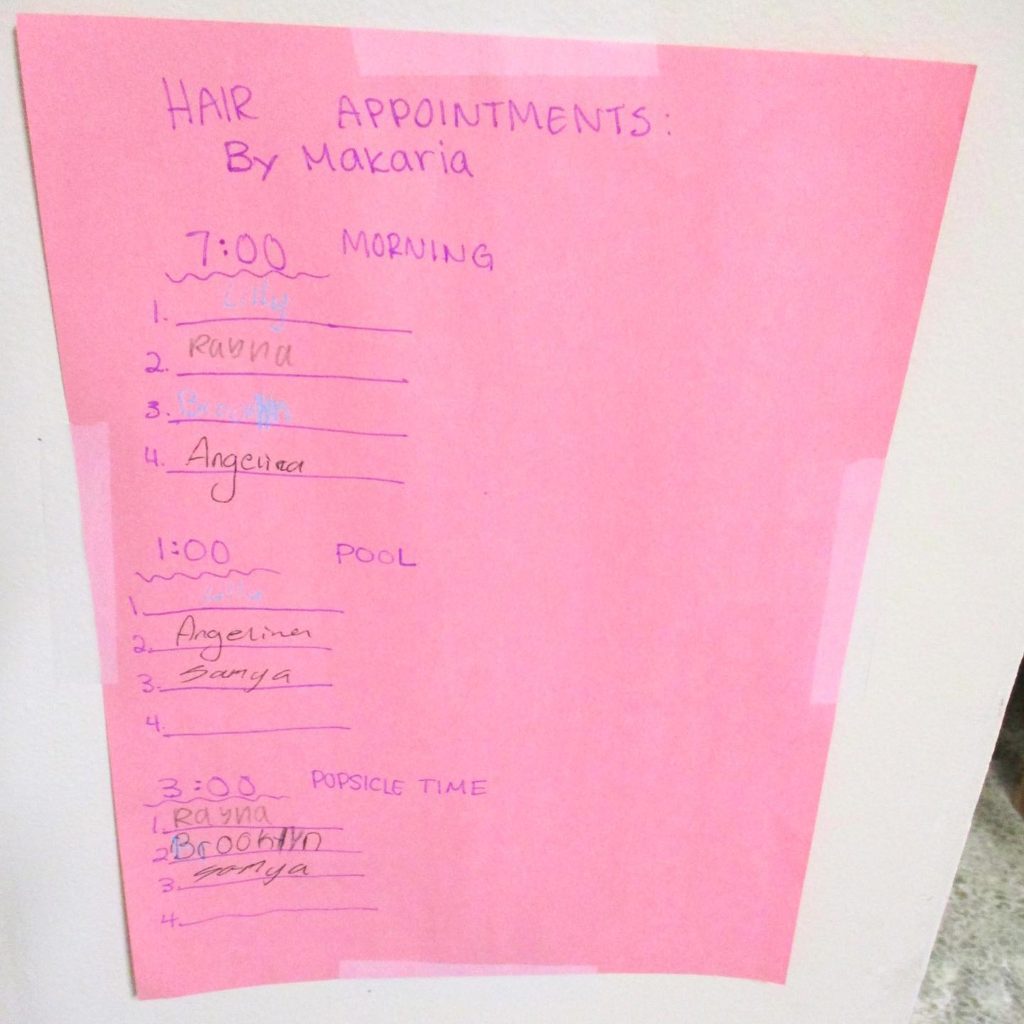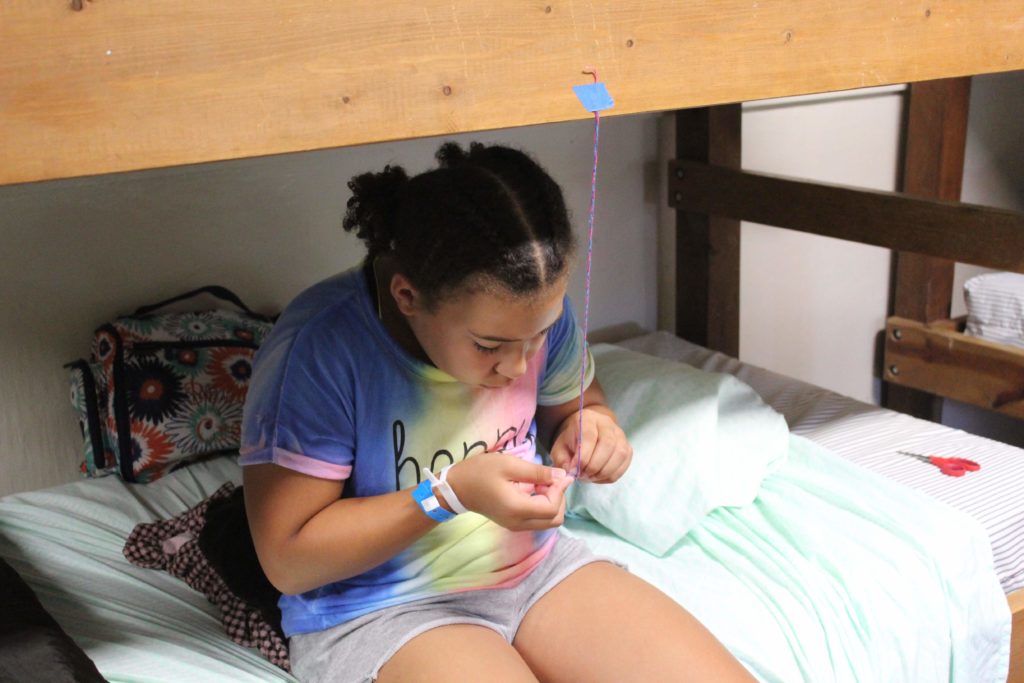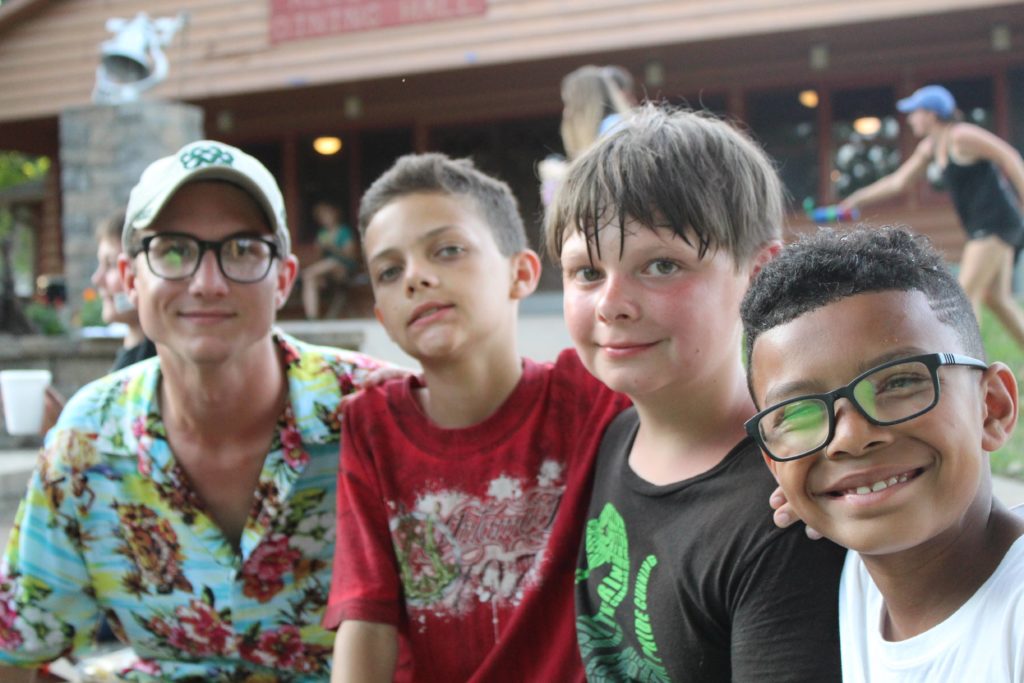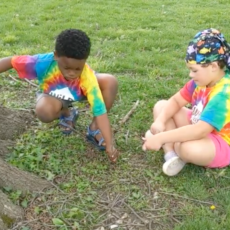For many parents–maybe even you–this fall will include some degree of homeschooling. Whether it’s full virtual school, a part virtual schedule, or parents leading full homeschool lessons, being tasked with managing a student’s needs can be daunting and stressful.
So, while we might not be able to stay at home with your child, we’d like to offer a few camp tricks to make homeschooling just a little easier.
Schedule and Choice
When researching for this blog post, Laura, our Operations Director and master of all things summer camp, explained that “there’s no way you can do camp without a schedule. Without it, camp would be chaos.”
Camp Wildwood thrives on its structure and schedule, carefully crafted to provide opportunities for choice, play, rest, and reflection while also maximizing fun and learning. On the first day of each camp session, campers choose their activities for the week. While some activities–like having lunch–aren’t optional, we try to give campers as much choice as we are able. Choice encourages campers’ sense of independence and ownership over their session.
The detailed schedules are then posted in cabins, and, like a school schedule, every camper can see what they’re doing next, when they’ll have popsicles, when they get to swim.
The schedule helps campers (and counselors) feel less stressed, and offers predictability with consistent transitions. This is particularly important for first-year campers, who are in a new environment with new friends and new activities, but we know the consistency is valuable to our veteran campers too.

At home, we know schedules have to be both more flexible and more rigid than at camp. Nevertheless, putting together a loose schedule that kids get to help choose (even if it’s just choosing between two activities offered at a time) and posting it on the fridge or living room wall is shown to help reduce stress for kids and teens. Who knows–it might even help parents feel reassured.
Opening Activity
Each camp day begins with an opening activity. “It’s usually something to get campers moving and feel energized,” explains Laura. Sometimes this looks like playing a game of Gaga ball, ninja warrior warm-ups, or an acting exercise in which campers mime grocery shopping.
We find that once campers have moved a little, they are able to shake off the sleepiness of the morning and are more ready for the day ahead.
Laura recommends 5-10 minutes of movement before starting the day’s schedule. We like Cosmic Yoga for Kids, “animal” exercises (like a bear crawl) or simple warm up activities.
Quiet Time
Here’s something you probably already know–naps are great. I deeply enjoy a Sunday afternoon snooze, and I loved the quiet hour when the toddler I nannied slept.
A nap is mostly not feasible at camp (especially after a morning filled with activities), but we also know that it’s essential for campers to have time to be quiet and rest. At Wildwood, we have an hour of quiet time for campers right after lunch.
As the name suggests, the hour is quiet–not silent–and offers on slower, less mentally and physically taxing activities. Campers might write letters home, read a book, make friendship bracelets, play cards, or just have some alone time. “The time really helps [campers] sort out needs they didn’t know they had,” explains Laura. It’s an opportunity to sort out thoughts, rest, and get in tune with their needs.
Quiet time can also be anywhere that’s restful. For campers, the space might be in their bunk or under the shade of a tree. For students, the space might be a hammock in the backyard, a quiet spot in the living room, or a reading nook.

Closing Activity
Finally, at the end of each day, campers participate in a closing activity that helps campers process their experiences and prepare for the day ahead.
Often the day closes with “rose and thorn,” a short processing activity. The idea is that all roses come with thorns to work through. In the activity, campers each name their high point of the day was (the rose), and one thing that they struggled with (the thorn). Common roses at camp include accomplishments, having a favorite food, participating in their favorite activity. Thorns often include struggling with teamwork, getting frustrated with friends, and not enjoying an activity.
Naming roses and thorns provides campers with an opportunity to reflect on their day, express any concerns, and not overweigh negative experiences.
At home, this might work well over dinner or just before bed, parents and kids sharing equally. In my family, we sometimes play a variation called “fortunately, unfortunately.”
It goes like this: “Fortunately, I got up early and had a good breakfast. Unfortunately, the shirt I wanted to wear was in the wash, and I had to wear one with a scratchy tag ALL. DAY.” In our version, we try to keep going for as many rounds as we can. Sometimes, as a surly teenager, I provided only the “unfortunately” sentences.
Like rose and thorn, this version encourages reflection, but adds a little fun for days when we need a laugh.

You Can Do This
Getting ready for school this fall is stressful.
Parents, we’re behind you. We know you can do this. And we’ll be here next summer for your camper.



